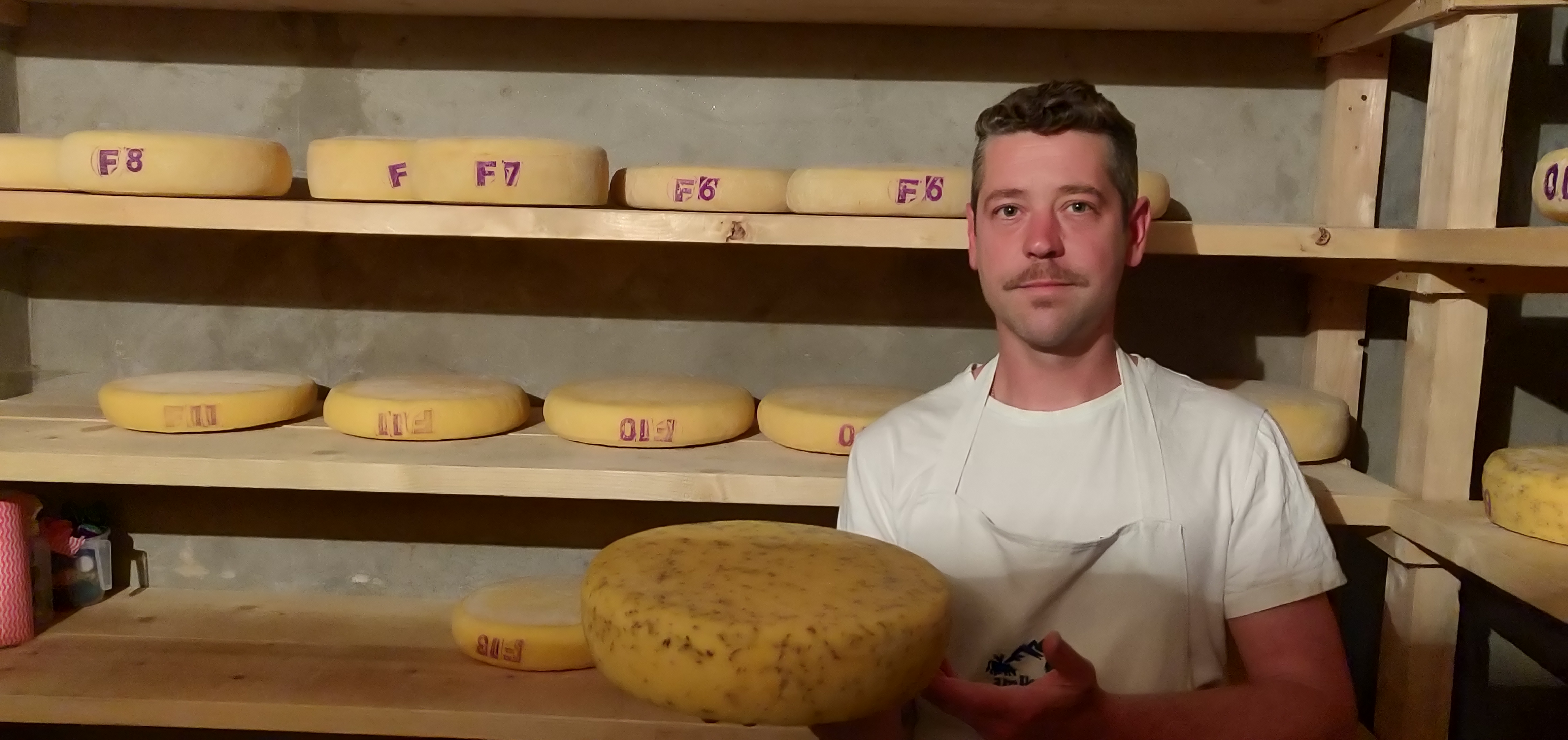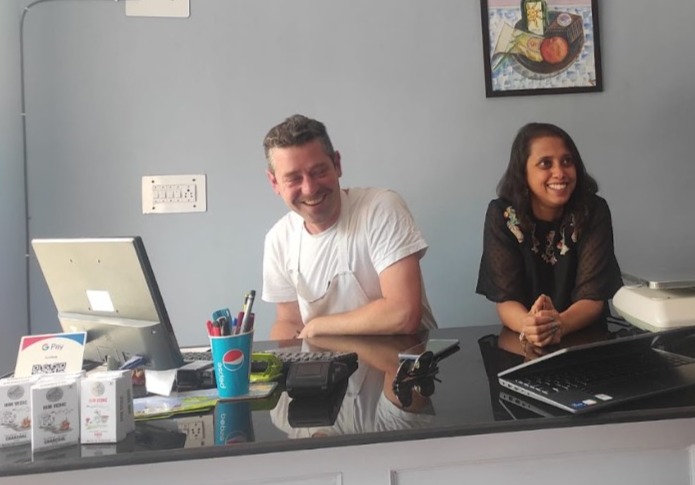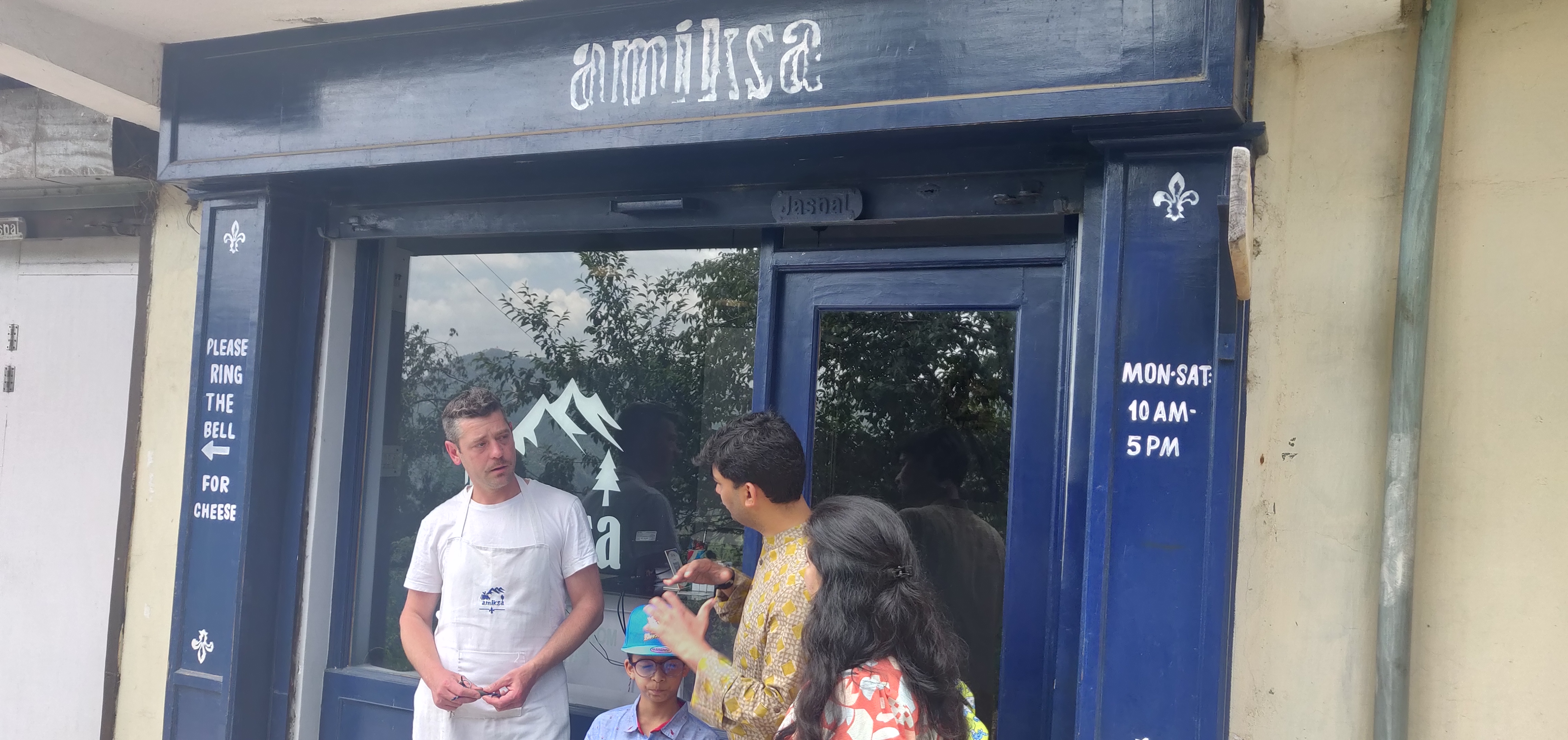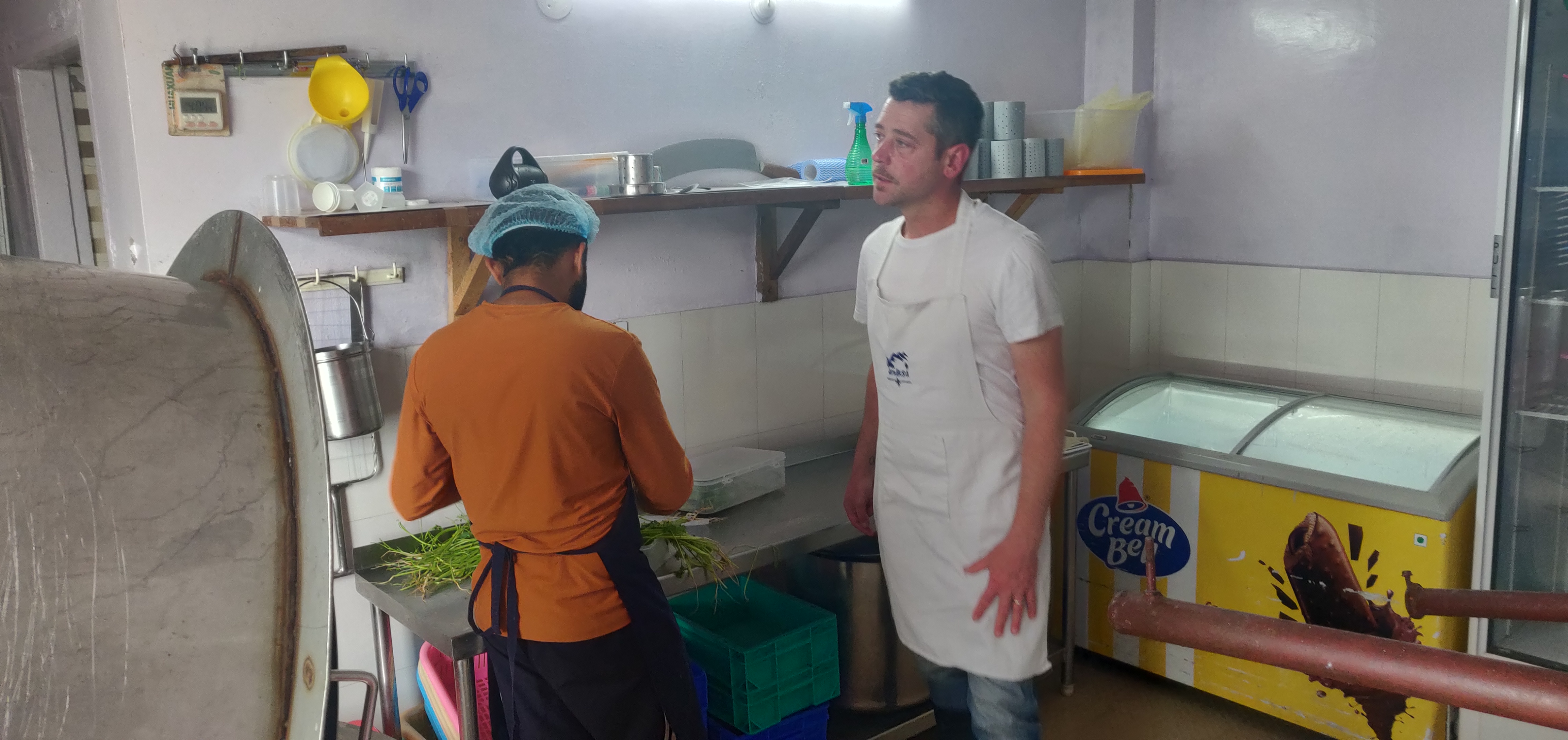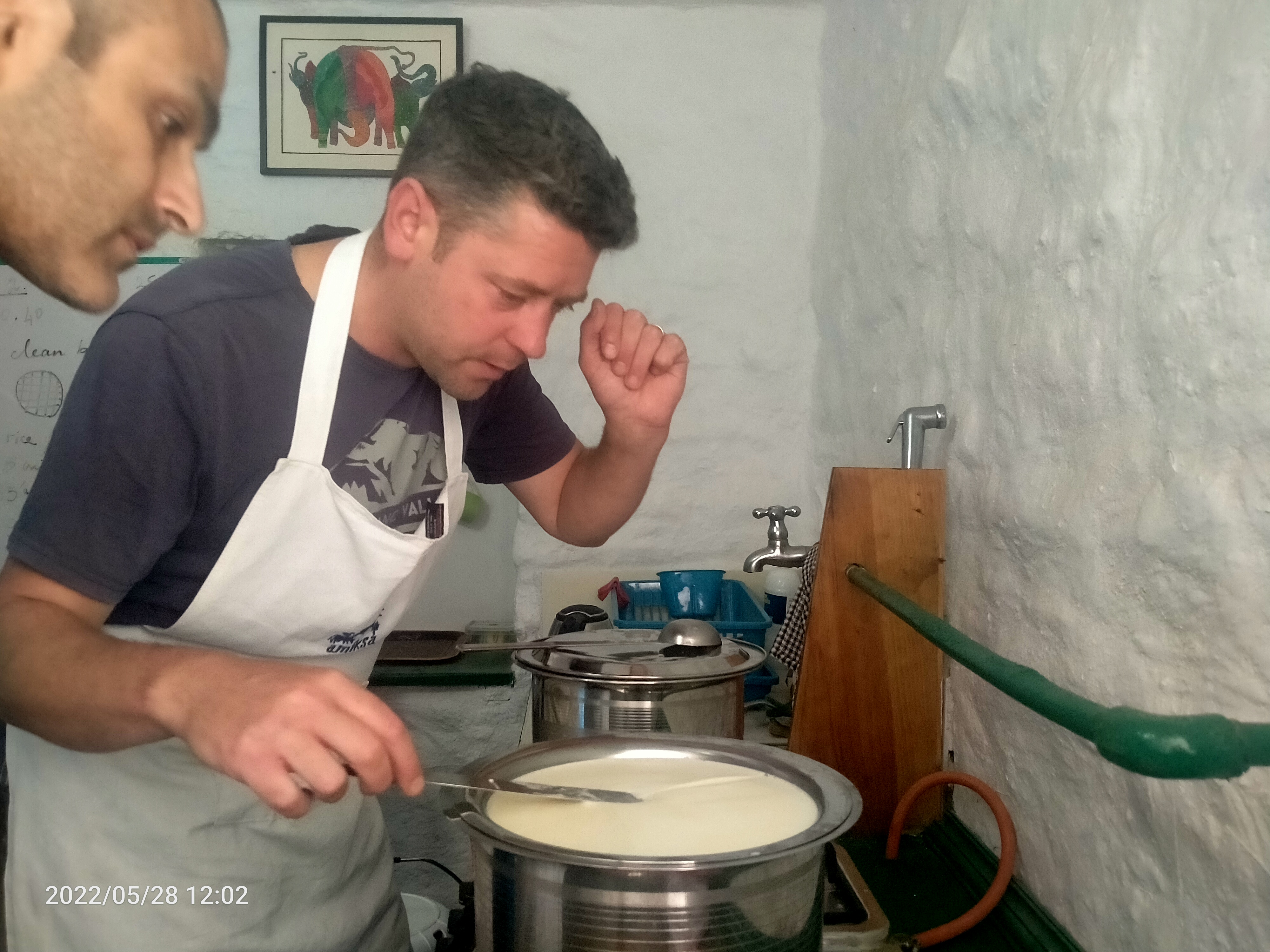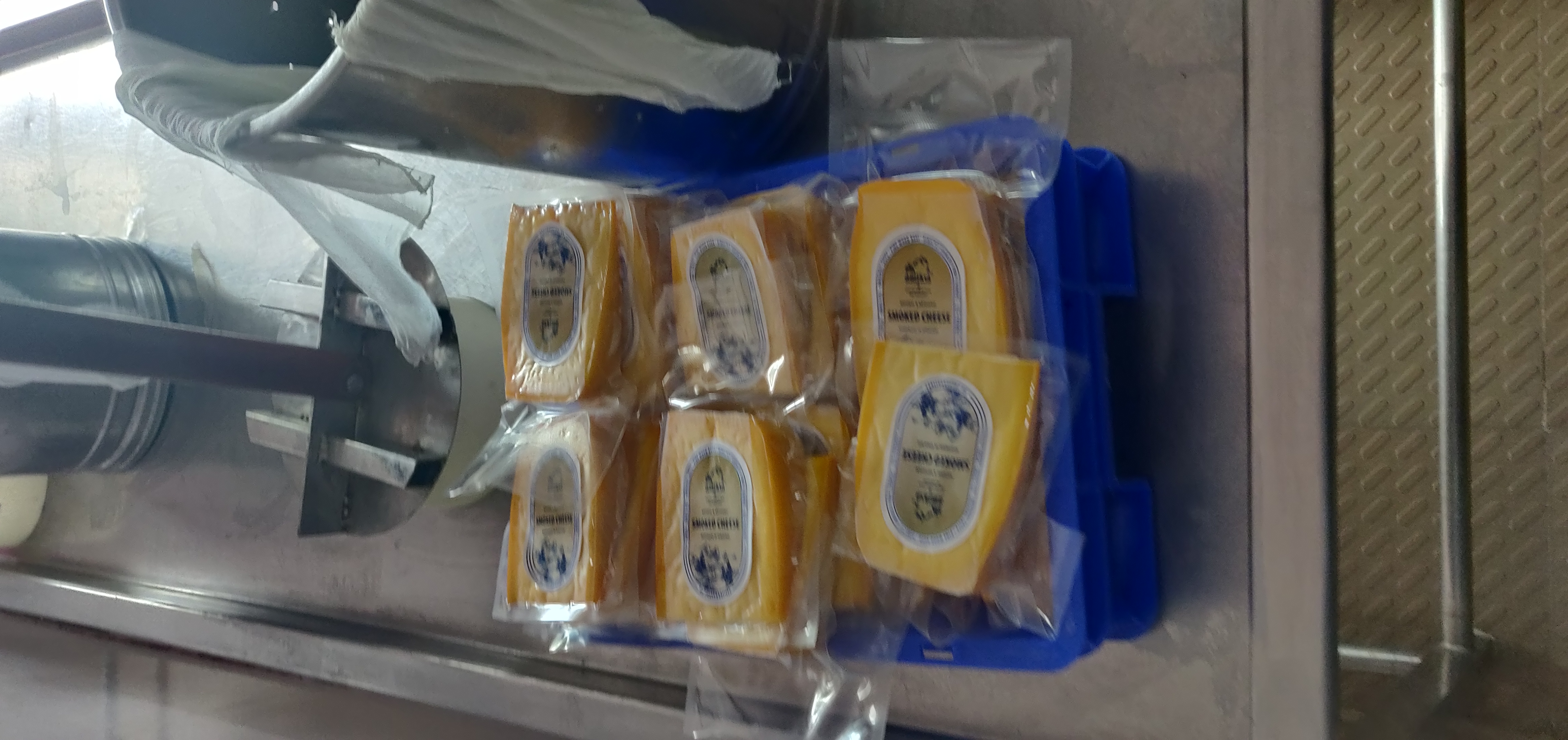The narrow, curving roads and the rolling hills of Mashobra, located east of the main Shimla town, are one of the last pristine lands in the region, with most other areas of the city teetering under the weight of increased urbanisation.
Not that Mashobra and its surrounding villages have remained unchanged over the years. Resorts and homestays and cottage estates have mushroomed across the hills in the region, with tourists and new residents alike drawn to the unspoiled living conditions and natural beauty.
The environment, as well as the natural herding and agricultural practices followed by villagers in the region, is what led to Francois and Debarati Laederich choosing to settle down in the Mashobra valley and launch their business venture Amiksa Cheese, creating and selling handmade artisanal cheese.
“Mashobra was the perfect place for us to settle,” Francois said, “not very far from urban Shimla but still in the middle of nature.”
“There was a particular serendipity,” Debarati said. “We came to this region when our younger child was six months old and our elder one was three, and scouted everywhere before deciding to settle down here.”
The couple founded Amiksa Cheese and produce natural handcrafted cheeses based on classic French and European techniques. Both Francois and Debarati emphasised that the most important aspect in making cheese is the quality and nature of the milk.
Debarati explained to us the French concept of Terroir – a sense of place that comes through in the flavour of food. The flavour of milk and the cheese from which it’s made can be significantly affected by where the animals graze, what they eat, and the microclimate of the farm.
“The farmers here are very traditional,” said Francois. “They primarily feed their cows grass, which is very important when it comes to using milk for making cheese. Cheesemaking is all about the milk.”
After an extensive tour of India’s hill stations, the couple found that Mashobra and Shimla checked all the boxes for them, both personally and professionally. The climate was similar to that of the French Alps, the local farmers used natural and organic techniques without using artificial growth aids and the city was connected well enough for them to ship their products in a timely manner.
Francois was born and raised in Paris and is trained in the art of cheesemaking in Aurillac, Auvergne-Rhône-Alpes region of France. He has always had a passion for the craft and helped his brother make artisanal cheese in Pondicherry while helping manage his family’s boutique hotel. In fact, Francois and Debarati tell us, India’s artisanal cheesemaking industry began in South India over two decades ago and there was a healthy curiosity and interest in cheesemaking in the region.
“This is how I met my wife,” he said. “She came into the hotel in search of cheesemaking and said ‘I read it somewhere and I heard you’re doing cheesemaking; can I visit the cellar?’ That’s how the story started.”
Amiksa is a very small scale company. Francois started alone and now employs three others. Their cheesemaking atelier, or workshop, turns approximately 120 litres of milk into about 12 kg of a wide variety of cheeses in a single production cycle.
Amiksa Cheese has gone from strength to strength and gained a dedicated and growing customer base since it was founded in November 2019. It was recently recognised as a startup by the Department for Promotion of Industry and Internal Trade's (DPIIT) Startup India initiative.
In fact, Debarati says, even the name of their brand was inspired by a suggestion from an acquaintance.
"Amiksa in Sanskrit means cheese curds, which is the separated solid from the liquid in milk," she said. "The name is very unique and fitting for us."
Over the last 20 years, the Mashobra Valley has become a popular resort destination for tourists and out-of-towners to build summer homes. Local and seasonal residents in Shimla and Mashobra; cafes, restaurants and resorts in the valley and tourists passing through are all regular visitors at Amiksa's shop.
Amiksa Cheese also ships products to partner sales outlets across the country, with their biggest market being New Delhi and Chandigarh. However, brand recognition and popularity as well as the quality of their products have helped Amiksa carve out a nice niche market share, and one which is constantly growing.
Debarati shared with us an amusing anecdote from when they were just starting out and looking for a regular milk supplier. Their first suppliers were from the nearby village of Sadhaura, and she recalled that the villagers were incredulous at being asked to supply nearly 40 litres of milk a day to one household.
“You should have seen them; the first time, they were stunned to meet a foreigner and a non-Himachali,” Debarati recalled.
“They asked us, ‘You want 40 litres of milk everyday?’ and I said yes,” Debarati said. “‘Kya bana rahe ho (what are you making)?’ was their next question. So I said cheese, and they didn’t understand.”
“‘Kya cheez (what thing)?’ was their reaction,” Debarati said, breaking into laughter at the punchline.
All jokes aside, Debarati said they were very grateful to the milk producers in the valley who trusted Amiksa enough to become regular suppliers for their brand.
“They gave up their regular business and buyers of milk and put their trust in us,” she said. “And their trust actually worked, because we kept buying their milk even during the subsequent COVID lockdown.”
When we asked about their plans to expand their business, Francois had a novel reply related to the intermittent cheesemaking and food exchange workshops he teaches at and attends.
Most of Francois’ workshops are hosted at Himalayan Orchard, a farmstay operation run by an Indo-British couple around two hours’ drive from Mashobra. At these events, he said that he interacted with an eclectic mix of people at these events; chefs, home cooks, amateur enthusiasts and farmers and dairy producers looking to diversify their milk products and consume their surplus.
The growing widespread interest in cheesemaking gave Francois the idea of training local pastoral tribe members in traditional European cheesemaking techniques.
“The idea will be to go and train them about cheesemaking to help them develop their income. This is something I’m really interested in; sharing my knowledge. I feel that needs to be done in India,” he said.
He added that it was a way for him to reconnect with his roots by replicating the original creation process of how cheese was born; originally in Europe, when pastoral villagers had an excess of milk, they made and sold cheese.

